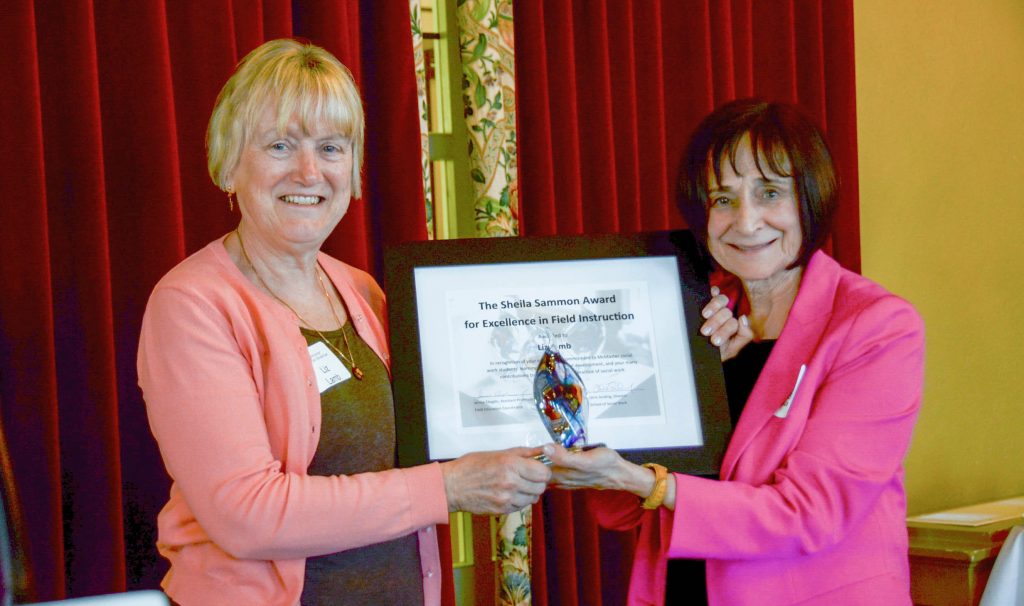Social Work is a career for the brave of heart

Social work field instructor Liz Lamb, left receives her award for contributions to field instruction from professor emerita Sheila Sammon.
Social Work is not for the faint of heart. As a career, it demands a lot, both personally and professionally: A social worker needs to be compassionate, empathetic, knowledgeable, kind, respectful, a skilled communicator and a champion relationship builder. At times of crisis, a social worker must display courage, professionalism and calm.
McMaster University’s School of Social Work community recently honoured 27-year veteran Social Worker Liz Lamb with the Sheila Sammon Award for Excellence in Field Instruction at the annual Field Instructor Recognition Breakfast.
Nominated by her students and peers for her ongoing commitment to field education in social work, Lamb has supported the development of generations of social work students.
The award was established in 2016 in recognition of professor Sheila Sammon’s outstanding contributions to social work practice and field education — not only at McMaster, but also at a provincial and federal level — over almost three decades.
With wisdom, skill and generosity, Sammon supported the development of generations of students, practitioners and educators, all striving toward the ethical and just practice of social work.
The award is conferred annually on a field instructor who extends Sammon’s commitment to skilled and just practice through exceptional contributions to students’ learning and professional development and the school’s field education program.
“Liz has provided many students, including myself, with development in their practice style related to McMaster’s School of Social Work Philosophy.” said BSW student Leanna Dass.
“She has provided me with skills, knowledge and professional growth that is essential for my future social work practice”
In a climate where social workers are increasingly being asked to do more with less, the work of the more than 150 McMaster School of Social Work field instructors from more than 100 agencies is more important than ever.
The contribution of field instructors like Lamb is made even more significant by the growing challenges social work field educators face in finding supervisors and placements for students across the country.
“Field practice is one of the most important elements in the education of future social workers. It’s where it all comes together and students get to experience practicing in the real world in organizations and alongside service users,” says Janice Chaplin, field education co-ordinator and assistant professor at the School of Social Work. “Field work allows students to test out their knowledge and skills and to finally practise what they have been taught in the classroom.”
“Liz Lamb is an exemplary example of a social worker and field instructor. She is really viewed as a legend in the social work community,” says Chaplin. “She is a true champion of McMaster social work students.
“We are so grateful for her dedication and ongoing support of our students and program”
